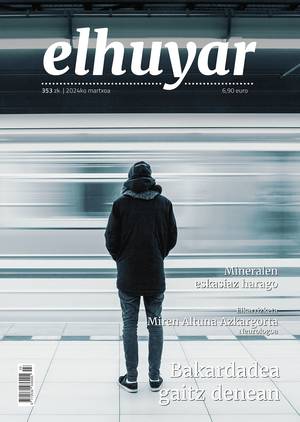Fracking or hydraulic fracture in question
Gas extraction in Alava due to hydraulic fracture has generated intense debate from the very moment of its proposal. We had the news of the proposal in 2011 through statements by then-President Patxi Lopez on a trip to Dallas. The environmental problems and dangers of this technique were soon made known to society, along with the videos that brought a match to the taps and showed the water on fire. It can be said that dismissal, distrust and ignorance dominate the hydraulic fracture.
Hydraulic fracture is a technique of extraction of hydrocarbon deposited in the pores of rocks. It is sounded to the depth at which the gas is located and pressurized water is introduced, along with other compounds, to break the rocks so that the gas stored in them is poured into the well for later collection.
Despite being a technique used in the United States for some time, it has spread little abroad, among other things because it is more expensive than the exploitation of traditional gas deposits. However, as the peak of hydrocarbons is reached, interest in unconventional sources has increased, as what was previously unprofitable seems to be more competitive now.
From the environmental point of view, the main drawbacks of the technique are the risk of contamination of aquifers, the amount of water consumed and the high surface occupied by the farms. For their part, those who do not question the security of the technique highlight among the advantages the access to greater energy autonomy and the economic activity that will generate.
Itxaso Arostegi Olalde and the professor of Mineralogy and Petrology of the UPV/EHU Javier Arostegi Garcia are all about the characteristics of the technique, the projects of Alava, the possible risks and opportunities, economic profitability, subsidies and our energy strategy. According to them, there is a big difference between the possible damage and benefits of hydraulic fracture, and they make a commitment to look long-term, investing our money in research that helps save and improve efficiency.







